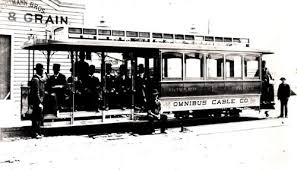omnibus
英 [ˈɒm.nɪ.bəs]
美 [ˈɑːm.nə.bəs]
- n. 公共汽车;精选集;文集
- adj. 综合性的;总括的;(包括)多项的
星级词汇:

记忆方法
将“omnibus”拆分为“omni-”和“-bus”。想象“omni-”代表“所有的”(all),而“-bus”类似于“bus”(公共汽车),所以“omnibus”可以想象成一种能够“包含所有”(to carry all)的事物或概念,比如一个包含了所有不同乘客的公共汽车,即一辆能够服务所有人的公共交通工具。这样的联想有助于记忆“omnibus”作为一个涵盖广泛或包括所有事物的名词。
以上内容由AI生成, 仅供参考和借鉴
中文词源
omnibus 汇编,公共汽车
来自拉丁语omnibus,全部,所有,来自omnis的复数与格形式。引申词义汇编。原也用于指公共马车,现用于指公共汽车,通常缩写为bus.
英语词源
- omnibus (n.)
- 1829, "four-wheeled public vehicle with seats for passengers," from French (voiture) omnibus "(carriage) for all, common (conveyance)," from Latin omnibus "for all," dative plural of omnis "all" (see omni-). Introduced by Jacques Lafitte in Paris in 1819 or '20, in London from 1829. In reference to legislation, the word is recorded from 1842. Meaning "man or boy who assists a waiter at a restaurant" is attested from 1888 (compare busboy). As an adjective in English from 1842.
权威例句
- 1. I enjoy the omnibus edition of Eastenders on Sunday.
- 我喜欢看《伦敦东区》的周日连播版。
- 2. the 90-minute Sunday omnibus edition
- 90分钟节目的星期天综合版
- 3. You have to explain it in terms that the man on the Clapham omnibus would understand.
- 你必须用老百姓能理解的语言来解释这事.
- 4. Disgruntled and defeated omnibus owners and drivers groaned aloud.
- 心怀不满的和遭受挫折的公共马车商人和车夫高声叫骂着.
- 5. He had never seen an omnibus at any time in the Buchingham Park Road.
- 他从来也没有见到公共马车在任何时候从白金汉公园路经过.
